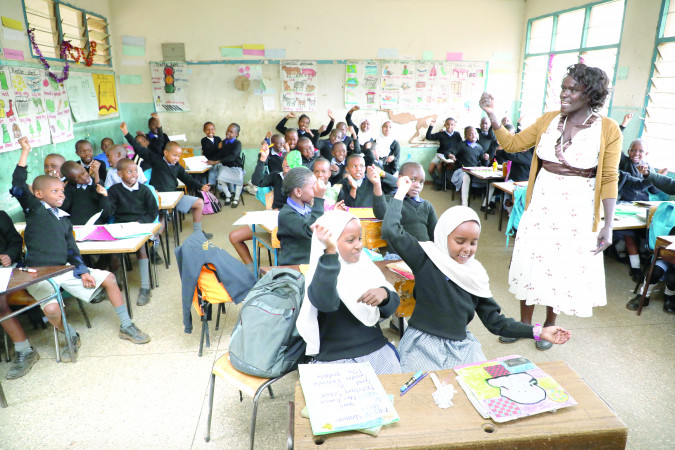Let’s encourage our children to read African stories
By PD columnist, August 29, 2022African children are denied content that could promote their understanding of our core values when constantly subjected to an overload of information set in foreign worlds. Most books sold on our streets and bookstores are bereft of everything African and replete with western content that our children cannot relate to.
They are encouraged to idolize characters, places, ideas, and standards that are strange to them and which many, if not all, might never experience. Ask any African child about Spider-Man, Sponge Bob, PAW Patrol, Disney Mickey Mouse, Snow White, Rapunzel, Cinderella, and Frozen, among others, and they will put you to sleep with their endless narrations.
Dare touch on Wangu Wa Makeri the Muranga chieftess, Queen Nzinga of Ndongo and Matamba, Mepoho the Giriama prophetess, Cierume the Embu warrior, or the beautiful terrains of Africa with great weather all year round; you would be tasked with first explaining the “strange” names and teaching their pronunciations before embarking on your ALIEN story. Our children are influenced into appreciating foreign cultures and deeming them acceptable and exciting while suppressing their chances to experience and acknowledge our African culture.
When telling stories to showcase their outstanding orator skills or broad imagination, most African children will dwell on settings covered in snow and Christmas events graced by Santa and praise heroic caucasian characters with Rapunzel hair who speak English and live overseas. Thus, it is befitting to say that most of us have failed as the link between the previous generation and the generation we intend to leave behind.
What happened to stories such as the hare and the tortoise, the blacksmith and his pregnant wife, the girls and the ogre with three eyes that our grandparents narrated to us sitting by the fire? Our duty as writers, content creators, storytellers, and caregivers is to tell our children stories of their people, environments, and traditions. These stories can highlight our natural settings and fun childhood where characters run bare feet around the neighbourhood, climb fruit trees and eat from the yields of their fertile lands, build mud houses, make wire cars and traverse the terrains of their beautiful land, sing African songs in groups incorporating children from different tribes, and promote our core values through sharing, collaborating and making friends in the spirit of communism.
As Chimamanda Ngozi said, hearing a single-sided story of a people or a country risks a critical misunderstanding. Therefore we should be the storytellers of our African stories to our African Children. We have amazing African stories that do not focus on suffering, defeat, failure, corruption, and hopelessness. “Aaarrggg, those 1800 stories again?” You might ask. No. We have relatable stories featuring characters our children already know. In some of my stories, I have featured stories such as a young boy without education who worked as a fisherman in lake Victoria and later became an iconic TV personality, graduated from university and vied for a parliamentary seat (Jalango). I have told a story of a young Kenyan girl that won many acting awards, an encouragement to children to dream intimidating and seemingly impossible dreams (Lupita). Additionally, I have narrated about a girl with a dream to save the world from climate change (Wangari Maathai) and many more.
Recently, when Cadbury called for writers to submit stories told #InOurOwnWords in its initiative dubbed read to succeed, tens of stimulating stories told by African writers were digitally published.
All these stories were culturally relevant to our children because they represented the African children, their settings, and their way of life. Such an initiative is paramount to help ignite a culture of reading in African children, expanding their imagination in appreciating and acknowledging their capabilities. Fortunately, because of this initiative, one of my stories, “My Journey To School,” was published by Cadbury as my first children’s book out of my original 300+ stories featuring African characters and creating a mindset that African children can also be the best, cool kids, heroes to solve peers and community problems, innovate, and be beautiful.
The problem, however, is that most of these stories will not see the light of day because of the technicality of production and the costs of publishing a fun story with eye-catching illustrations. Therefore, African writers, publishers, corporates, and government should team up to bring African stories to life and increase the number of available books that build an amazing future filled with a sense of identity and representation.
— Caroline Nderitu is a poet and writes children’s books
